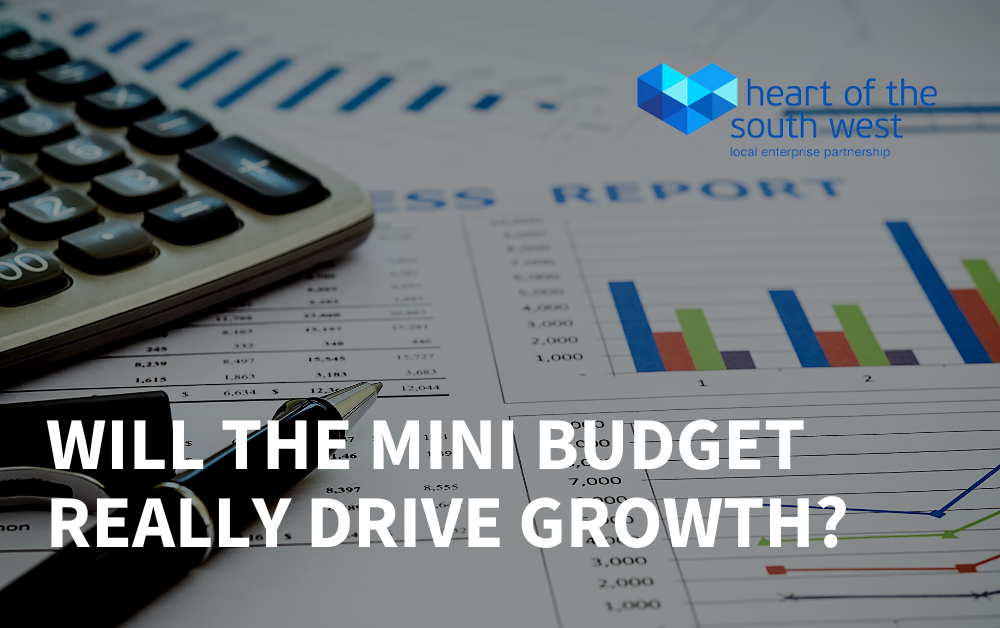Written by David Ralph, CEO of the Heart of the South West LEP.
The mini budget revealed this month turned out to be maxi in every way, with the Government clearly changing its approach. Whether it will deliver growth, we shall have to see. The incentives for business investment are important and very welcome, but the overall tax burden remains at its highest levels since the 1950s. Frozen levels of personal allowances will erode some of the benefit of the 1p rate cut, and it seems that further increases in interest rates are likely to mitigate the inflationary nature of the budget. These will further erode spending power and eat into available public finances as government costs of borrowing rise.
The fiscal event clearly sets the Government’s commitment to an ideology of low taxes and regulation. However, there are multiple examples of international competitors with higher taxes and more regulation, which have higher growth and productivity than the UK. Even the much-vaunted Singapore model doesn’t bear real scrutiny – Singapore is one of the most regulated places on earth. The Government has gambled on the next election, and we lack a coherent long term plan to focus on growth opportunities, backed by the public/private partnerships needed to drive investment, innovation and skills. We had this only a short while ago, but the industrial strategy and its coherent focus on place feels like the distant past.
Much of the fiscal statement was about macroeconomics. Although the Growth Plan mentions skills, there is no substance on how we will develop the new skills the country and emerging technologies need. There is also no clear pathway for how to nurture those future growth sectors in which the UK has the potential to lead the world. In February the heralded Levelling Up white paper set out the strategy for much of the government’s growth agenda. At this point it’s unclear how or where this former flagship policy fits, though echoes of it persist in the Investment Zones and Enterprise Zones. We are pleased that two of these (in Plymouth and Somerset) are in the Heart of the South West.
Broader thinking may well be underway, and it is early days, but the route map to achieve sustainable growth is not clear at this point. More than ever, it is vital that local places champion their opportunities and the investable proposition with coherent market-tested proposals. Friday’s mini budget only re-emphasised to me the importance of coherent local vision, shared across the private and public sectors, and driven by local, effective leadership. For example, clean energy is one of the biggest growth opportunities of the future, with thousands of well-paid jobs to boot. The South West has the potential to lead in this, and the private and public sectors, working together, can mobilise the investment needed in skills, innovation, and trade opportunities to bring that potential to life.


